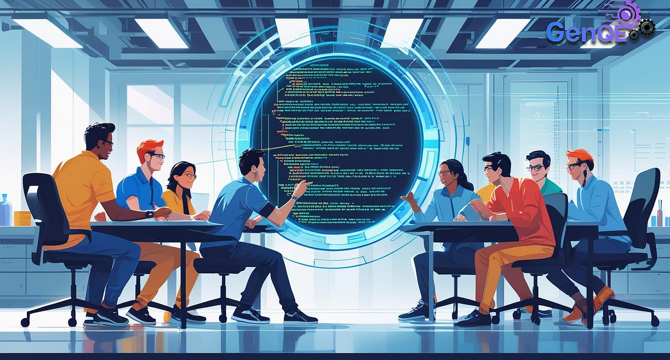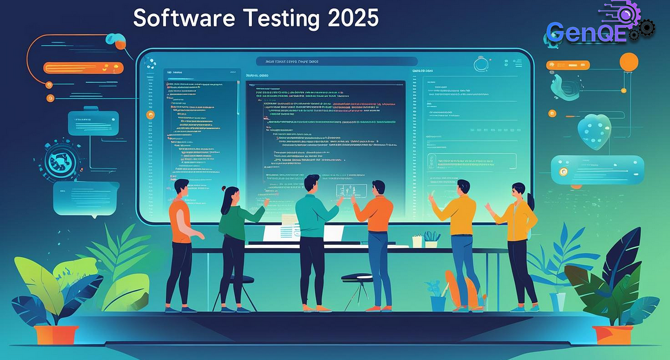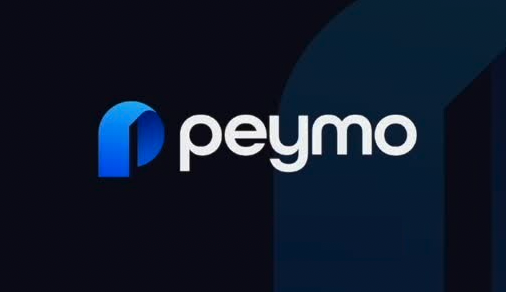Innovation News
Insider
124
Image Credit: Insider
The next wearable tech could be a face 'tattoo' that measures mental stress
- Researchers at the University of Texas at Austin are developing a digital 'tattoo' that can read brain waves and measure mental workload for high-risk job workers like air traffic controllers.
- The 'e-tattoo' is thin and light, resembling a temporary tattoo sticker, applied with adhesive to the skin to monitor brain activity and eye movements.
- The device aims to assist individuals in high-demand professions requiring focus and quick-thinking skills without overloading the operators, which could jeopardize mission outcomes and harm their health.
- The technology evolution emphasizes the need for tools to match modern jobs' demands, with wearable devices advancing to monitor health parameters from sleep to brain activity.
- While wearable tech has integrated with daily life, the electronic tattoo proposes a unique approach by analyzing brainwave data, distinctly lighter and smaller than traditional EEG sensors.
- The future goal is a real-time assessment of mental workload by implementing lightweight machine learning algorithms directly on the device's microprocessor.
- The global wearable technology market's value is poised for significant growth, signaling consumer openness to integrating tech into daily routines.
- However, commercialization of electronic tattoos is not imminent as further testing and development are ongoing at the University of Texas at Austin.
- The potential applications of the e-tattoo extend beyond high-stress professions to include aiding focus and meditation for individuals seeking relaxation.
Read Full Article
7 Likes
Medium
159

️ The Night I Learned AI by Building the Future
- A person shared their experience of learning AI by building it with emotional intelligence, ethical scaffolding, and continuity.
- The individual started asking questions and then proceeded to build AI systems focusing on emotional aspects and ethics.
- The learning process involved practical application such as system architecture, token logic, and emotional frameworks.
- Key aspects learned include tokenization models for real use cases, embedded ethics modules, governance systems for accountability, and AI-human interaction protocols based on trust.
- The blank page transformed into a structured, scalable ecosystem through real-time learning and continuous refinement.
- The approach highlighted is based on thinking fast, learning dynamically, and persisting until a true solution emerges.
- The building process is described as not perfect or polished but principled, intelligent, and evolving.
- The emphasis is on continuous learning, active listening, and adapting to the evolving needs of creating a future with AI.
- Hashtags used in the post: #LearnByBuilding #FoundersInMotion #AIThinking #EmotionalArchitecture #EthicalAI #VitaCore #ExecutionMatters #RealTimeStrategy
Read Full Article
9 Likes
Medium
44

Image Credit: Medium
The Visionary Product Manager: How to See the Future and Build It
- Being a visionary, or "The Prophet" in leadership circles, is demanding yet impactful for product managers, involving drawing from experiences, data insights, and intuition to foresee the future.
- A visionary product manager embodies qualities like courage, motivation skills, and the ability to gain buy-in for their vision by educating stakeholders effectively.
- They bridge strategy and tactics, emphasizing innovation rooted in customer feedback and addressing systemic needs over incremental improvements.
- Balancing visionary thinking with day-to-day tasks is crucial to ensure long-term success without neglecting operational execution.
- Anticipating trends, embracing AI integration, and focusing on customer-centric innovation are key aspects of being a successful visionary product manager.
Read Full Article
2 Likes
TechBullion
222

Image Credit: TechBullion
CoinSeries is Unveiling a New Website Version
- CoinSeries, a global cryptocurrency broker, has launched a new version of its website to enhance the user experience and support its growing user base.
- The updated website features a modern design, intuitive navigation, and improved access to core trading functionalities.
- The overhaul reflects CoinSeries's commitment to innovation and competitiveness in the fast-evolving crypto landscape.
- Enhancements include faster load times, responsive design, and optimized content structure for a better browsing experience.
- The new website supports high-volume traffic with improved stability and streamlined navigation pathways for traders.
- It serves as a central hub for the trading lifecycle, integrating trading tools, market feeds, news updates, and educational resources.
- The platform ensures real-time synchronization across devices, empowering users to manage their portfolios efficiently.
- Accessibility improvements and inclusivity features have been introduced, catering to both beginners and advanced users.
- The responsive design framework allows seamless access on various devices, with dark and light mode options and multilingual support.
- CoinSeries plans to introduce further updates, including AI-based insights, localized content experiences, and personalized account features.
- The company aims to provide a dynamic trading experience with educational content, industry analysis, and project spotlights.
- CoinSeries, known for its competitive spreads and trader tools, offers real-time access to a wide range of digital assets globally.
- The new website version aligns with CoinSeries's mission to enhance cryptocurrency trading accessibility, speed, and intelligence.
Read Full Article
13 Likes
Medium
279

Image Credit: Medium
Testing in the Age of AI: Navigating the New Software Quality Frontier
- The article discusses the impact of AI on software testing, emphasizing the shift towards a more complex and nuanced quality assurance process.
- Testing AI-driven systems requires understanding machine learning models, data pipelines, and algorithmic decision-making processes.
- Traditional black-box testing approaches are insufficient for AI systems due to their non-deterministic behavior and evolution based on new data.
- Modern AI testing focuses on assessing patterns, behavioral modeling, fairness testing, bias detection, drift monitoring, and accuracy assessment.
- Quality assurance teams now have the responsibility of ensuring ethical and predictable behavior of AI systems, going beyond detecting software bugs.
- Data quality directly impacts model quality in machine learning systems, making data management crucial for testing processes.
- AI testing involves synthetic data generation, bias detection, data integrity testing, and outlier simulation to ensure robustness and accuracy.
- Continuous learning and collaboration are essential for adapting testing strategies to the dynamic nature of AI systems, including model version control and concept drift detection.
- AI has become a valuable ally for testing teams, enhancing capabilities with AI-generated test scenarios, smart test coverage suggestions, and anomaly detection.
- The combination of AI efficiency and human insight is key for effective testing, ensuring relevance and priority evaluation within business contexts.
Read Full Article
16 Likes
Hackernoon
426

Image Credit: Hackernoon
How to change your life without formal schooling
- A Gen Z security guard discussed his lack of interest in formal education due to concerns about debt and instead focused on self-improvement through work and investments.
- He received support from his older sibling, watched YouTube videos for advice, and expressed interest in property investment and flipping houses.
- The guard believed in working and investing wisely for financial growth and was learning about individual stock investments.
- The article highlights the differences between Gen Z and Millennials in terms of career paths and financial strategies.
- It discusses the value of traditional education for some career paths while acknowledging the benefits of experiential and informal learning.
- The importance of networking, critical thinking, and structured learning with expert guidance is presented for those considering formal education.
- Advice is given based on personal experience, emphasizing the impact of meeting people, reading books, and taking classes in changing one's life.
- The article concludes with the notion that human connections and personal growth play a significant role in life transformation.
Read Full Article
25 Likes
Medium
306

Image Credit: Medium
Software Testing in 2025: Building Quality That Lasts
- Software development in 2025 operates on the principle of continuous testing, validating quality at every stage of the development lifecycle.
- Unit tests are written alongside code, API and integration tests ensure system components work together, and exploratory testing provides human insight before release.
- Monitoring systems continue testing in production, offering real-time feedback on system performance and user behavior.
- Collaborative quality approach sees developers writing tests early, QA professionals guiding strategies, and product managers aligning tests with business needs.
- Modern automation includes sophisticated API and performance testing, integrated into continuous deployment pipelines for rapid feedback.
- Shift-left testing focuses on early bug detection, while shift-right extends quality assurance into production environments for stability and resilience.
- Teams measure testing effectiveness through indicators like time to detect and fix issues, defect leakage rate, test flakiness index, and coverage of high-risk areas.
- Software testing in 2025 is a fundamental business capability impacting user confidence, business continuity, and product competitiveness.
- Quality practices lead to reduced technical debt, faster development cycles, improved customer satisfaction, and competitive positioning.
- Successful teams view testing as a confidence-building exercise, emphasize systematic approaches and shared accountability, and see testing as an enabler of innovation.
Read Full Article
18 Likes
Medium
249

Image Credit: Medium
Why Cluely’s $5.3M “Cheat Everything” Startup is Doomed to Fail
- Cluely, a provocative startup founded by Columbia University dropouts Chungin “Roy” Lee and Neel Shanmugam, received $5.3 million in seed funding from Abstract Ventures and Susa Ventures.
- The startup aims to develop an AI tool that promises to cheat on everything, stemming from Lee's suspension after creating a tool to cheat on job interviews for software engineers.
- Cluely's AI tool claims to provide real-time answers while being undetectable, despite the cheating connotation.
- The startup gained attention in 2025 for its controversial nature, sparking a tech arms race with other startups claiming to detect Cluely users.
- Critics argue that Cluely's deceitful approach and questionable ethics are likely to lead to its failure.
- The funding raised by Cluely has sparked discussions and concerns regarding the accountability and responsibility of investors in supporting such initiatives.
- The startup's origin story of turning an academic suspension into a multi-million-dollar venture has garnered both intrigue and skepticism.
- Cluely's approach has stirred debate about the fine line between innovative disruption and unethical practices.
- The startup's bold manifesto challenges the definition of cheating by comparing its tool to a calculator.
- Cluely's viral success has been driven by the controversy surrounding its AI tool's capabilities and intentions.
- The emergence of competitors claiming to detect Cluely users indicates the polarizing impact the startup has had on the tech industry.
- Cluely's focus on providing real-time answers through AI technology has raised concerns about academic integrity and fair competition.
- The startup's objectives and methods have divided opinions within the tech community, with some viewing it as a disruptor and others as a threat to ethical standards.
- The clash between Cluely's innovative promises and the ethical dilemmas it poses underscores broader debates about technology's role in facilitating dishonest practices.
- Despite the attention and funding received, Cluely's controversial approach and potential repercussions highlight the obstacles it may face in gaining long-term viability.
Read Full Article
14 Likes
Medium
169

Image Credit: Medium
Beyond e/acc: The Case for Principled Acceleration
- The e/acc worldview prioritizes building faster over considering human values and ethical principles.
- Effective Acceleration focuses on speed without direction, while Principled Acceleration (p/acc) emphasizes progress with a clear vector.
- Principled Acceleration sees technological progress as vital for human well-being but stresses the importance of ethical and social considerations.
- Velocity without a vector is chaos; Progress needs both magnitude and direction, according to p/acc.
- Principled Acceleration advocates for building ethical and social architecture alongside technological advancements.
- The pillars of Principled Acceleration are based on concrete tenets for a more resilient and just path forward.
- The debate between e/acc and p/acc is crucial for founders, engineers, investors, and policymakers.
- Effective Acceleration offers power in exchange for potential moral and social consequences.
- Principled Acceleration requires a shift towards being wise architects for a future that is just, resilient, and aligned with human potential.
- The call is to move beyond mere innovation and embrace thoughtful architecture for sustainable progress.
Read Full Article
10 Likes
Pymnts
389

Image Credit: Pymnts
Expedia and Accor CEOs: AI to Reinvent the Future of Travel
- AI is transforming the travel industry, according to Expedia and Accor CEOs at Viva Technology 2025 conference.
- Generative and agentic AI are reshaping internal operations, customer experiences, and partnerships in the industry.
- AI-driven changes will impact everything from booking to guest services within hotels.
- Both CEOs foresee AI streamlining non-customer-facing tasks and elevating the workforce's skills.
- Expedia and Accor are using AI internally to enhance productivity and externally to adapt to changing search experiences.
- Expedia is piloting features like 'Instagram Trip Matching' and plans to embed AI capabilities in other companies.
- Both companies see AI as a tool for reducing environmental impact in travel, with advancements in food waste, energy consumption, and carbon emissions.
- CEO views differ on the role of AI agents in the industry, with emphasis on human-centric hospitality.
- AI is seen as augmenting decision-making processes rather than fully automating tasks in the travel sector.
- Expedia and Accor CEOs highlight the importance of partnerships and leveraging AI for sustainable practices in travel.
Read Full Article
22 Likes
Silicon
405
Image Credit: Silicon
Meta Invests $14.3bn In AI Firm Scale, Poaches CEO
- Meta Platforms has made a $14.3 billion investment in the AI startup Scale AI, valuing the company at over $29 billion.
- Meta's investment in Scale AI is the company's largest-ever external AI investment, highlighting its focus on AI development.
- Along with the investment, Meta will hold a minority of Scale's outstanding equity.
- Meta has also poached Scale AI's founder and CEO, Alexandr Wang, and a few other staff members to join Meta's AI development team.
- Scale AI, founded in 2016, provides data-labelling services for machine-learning training, contributing to its revenue growth.
- Scale AI expects its revenue to more than double to $2 billion this year.
- Meta's Meta AI chatbot assistant has reached one billion monthly active users, and Meta is focusing on expanding its reach.
- Meta may explore monetization strategies for the Meta AI chatbot like paid recommendations or a subscription plan.
- Meta's investment in Scale AI contrasts with its past approach of developing AI technology internally.
- Other tech firms like Microsoft, Amazon, and Google have also made significant investments in AI technologies.
- Jason Droege has been appointed as Scale AI's Interim CEO following Alexandr Wang's departure to join Meta.
- Scale AI is committed to bridging the gap between human values and technology to unlock AI's full potential according to Alexandr Wang.
- Meta's investment and commercial agreement with Scale AI acknowledge Scale's accomplishments and future potential.
- Meta stated its commitment to AI technology, especially in expanding the reach of Meta AI.
- Meta is exploring various monetization options for its Meta AI chatbot assistant.
- Meta's investment in Scale AI is a significant move in the AI sector, mirroring the increasing competition in AI technology development.
Read Full Article
24 Likes
Medium
169

Image Credit: Medium
AI & Accessibility: Amplifying Human Experiences Through Google’s Innovations
- Accessibility and inclusivity are fundamental aspects of creating a truly inclusive digital and physical world.
- AI is instrumental in bridging communication gaps and creating more intuitive, personalized, and human-centered experiences.
- Google has incorporated accessibility into its products and services through AI innovations, showcased at Google I/O.
- Advancements in Live Caption provide real-time captions for audio and video content, benefiting individuals who are deaf or hard of hearing.
- Live Translate breaks down language barriers in real-time conversations, facilitating communication across diverse communities.
- AI-powered features in Google Maps enhance detailed and accessible navigation for individuals with visual impairments or mobility limitations.
- Project Relate, an Android app, aims to personalize speech for individuals with non-standard speech patterns, improving communication.
- Google's AI advancements like Gemini models focus on creating personalized and adaptive experiences for diverse user needs.
- AI can personalize user interfaces based on individual needs, optimizing readability and accessibility for users with different abilities.
- Google's commitment to leveraging AI for accessibility highlights a shift towards technology that caters to diverse user needs.
- Continued research and responsible AI development are essential to maximizing the benefits of AI for accessibility.
- Google's advancements showcase a vision of an inclusive future where AI amplifies human experiences and creates a more accessible world for all.
- The integration of technology and empathy exemplified by Google's innovations aims to build a more equitable and human-centered future.
Read Full Article
10 Likes
Pymnts
115

Image Credit: Pymnts
Peymo Launches AI-Powered Digital Finance Platform
- Peymo, a UK-based FinTech, launched an AI-powered digital finance platform integrating fiat banking, cryptocurrency wallets, and embedded finance.
- The platform, referred to as an 'AI-powered multi-hybrid bank,' allows users to manage British pounds, euros, crypto assets, and branded debit cards.
- Enterprises can leverage APIs for full banking functions.
- Features include a voice-first interface for hands-free banking, AI agents monitoring user behavior, and AI tools for navigation.
- Peymo is expanding globally and involving partners, early adopters, and regulatory stakeholders.
- Investors are invited to join Peymo for a transformative journey in the financial landscape.
- Mobile banking apps are preferred by many customers, with millennials and Gen Z using them as primary financial tools.
- Salesforce research shows that customer demand for better service and personalized experiences drove 25% of bank switches.
- 39% of customers switched banks in pursuit of improved customer service.
- The trend towards digital-first banking does not exclude the importance of personalized experiences.
- PYMNTS offers daily newsletters on digital transformation and AI coverage.
Read Full Article
6 Likes
Medium
44

Image Credit: Medium
Build, Buy, or Fine-tune? Making the Right AI Call as a Product Manager
- Using third-party, closed-source AI models through APIs offers speed and convenience, but can become expensive with potential limitations in customization and vendor lock-in.
- Fine-tuning an open-source model provides more control and customization, especially beneficial for niche fields, improved data privacy, and potential cost-effectiveness in the long run for specific tasks.
- Building a foundational model from scratch is a significant investment requiring vast resources, suitable mainly for very few companies with the capability and resources to do so.
- Product managers play a crucial role in deciding whether to Build, Buy, or Fine-tune AI models based on factors like cost, control, customization, and business goals.
- The decision on AI strategy should align with the product's objectives and user needs, guided by understanding the advantages and disadvantages of each approach.
Read Full Article
2 Likes
Medium
147
Image Credit: Medium
The Quiet Revolution in AI Is No Longer Quiet
- Meta announced a new team dedicated to building AGI machines, a significant step in AI development.
- AGI has been a goal in AI research, with other companies also mentioning it, but Meta's move is distinct.
- Mark Zuckerberg aims for Meta to lead in the development of AGI, focusing on future intelligence.
- The initiative goes beyond social media and is pivotal in constructing the intelligence of the future.
- India introduces 'Kruti,' a pioneering system likely to be the first of many similar advancements.
Read Full Article
7 Likes
For uninterrupted reading, download the app